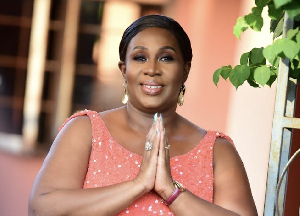culled from Electronic Telegraph Vibrant nightlife, dramatic beachlife; James Delingpole falls for an unspoilt corner of Africa
Getting there YOU HAVEN'T experienced Ghana until you've been to the Kilimanjaro. So my louche drinking partners insisted as we downed our umpteenth Club beers in the neo-colonial bar of the Labadi Beach Hotel. It was approaching 2am. Humidity and lager had taken their toll. "Can't it wait till tomorrow?" I pleaded. My companions grinned evilly and shook their heads. "What exactly happens at the Kilimanjaro?", I asked on the short drive to downtown Accra, Ghana's sprawling capital. "You'll see," someone said. By now I was beginning to panic: I'd only met these men on the flight out from London. How was I to know they weren't sadists or psychopaths?
We parked outside a row of ramshackle wooden buildings, negotiated our way through the bustle of cigarette-vendors, hustlers and young-Ghanaians-doing-nothing-much-in-particular and pushed through a darkened doorway. Then it started.
It was like being assaulted by a friendly octopus, for, all at once, I found myself being caressed by at least four pairs of hands. One pair stroked my neck, another massaged my chest, while the others - Help! Aren't men supposed to enjoy this sort of thing? - began straying terrifyingly close to my rude bits. "Come wid me," whispered a husky female voice. "Not wid her. Wid me," murmured another. "Stay wid me," said a third. "And I will be your special friend."
Aaargh! Instinct told me to run. Male pride overruled. I lurched towards a bar stool, the octopus in close pursuit. "Club," I rasped at the barman, scanning the gloom for my companions. They were being similarly entertained at the other end of the room. Suddenly, I felt very lonely. Or would have done, had it not been for the girl next to me going "Hey! HEY! Why you ignore me? I am your friend. Buy me a drink." I sighed resignedly. "Make that two Clubs."
Her name was Jeanne. She was 17, pretty-ish and came from neighbouring Togo. I suppose it was her lucky night. Not only had she found a client who could converse in her native French (she'd already exhausted her limited supply of English), but also one who clearly wasn't keen to indulge in your average prostitute's least favourite activity: sex. What, I wondered, was a nice girl like Jeanne doing in place like this? "I want to find a husband," she said.
By the end of that evening I was passionately, hopelessly in love. With Ghana, I mean. I'd been drawn there by rumours that the country was one of Africa's hidden treasures. My four, all-too-brief days in and around Accra, amply demonstrated that this wasn't just an idle clich=E9. Beguiling, exotic, mysterious and infused with just a hint of delicious menace, Ghana is one of those rare places where almost everything you do turns into an adventure. Even something as simple as going to the beach.
I discovered this on the night of my arrival. A quick sundowner on the verandah. A delicious plate of red-red (a pungent local concoction of fish, meat and red beans). Through the hotel grounds and on to the sand. There, beneath a huge moonlit sky pregnant with rain, shadowy figures danced to music in the warm tropical wind and Atlantic spume. Music boomed from a bar pullulating with sweating black bodies. A contortionist was tying himself in hideous knots and trying to wriggle into an aluminium bathtub. A girl with long, blonde hair rode by on a white horse. Prostitutes, grass dealers and rum vendors hissed and beckoned. "Hey my brudder! I come chant wid you for Babylon."
It reminded me a bit of my first rave. Everyone seemed to be high on something, whether beer, strong liquor, marijuana or the local aphrodisiac brew KDA. The music - hardcore hip hop mostly - boomed at ear-shattering volume. And there was the same aura of decadence, confusion, and unbridled hedonism; the same whiff of danger. Or perhaps that was just paranoia.
Certainly, Ghana is a good deal safer than its impoverished, war-torn, or drug-and-corruption-ridden neighbours, especially now that the president, Flt Lt Jerry Rawlings, has been returned to power. Crime is uncommon and the populace well-educated and extremely friendly.
There is none of that subdued antipathy towards white people that you encounter in so many former European colonies. This may seem odd, given the number of old slave forts lining the country's coast. But it has to be remembered that most of Ghana's tribes - notably the Ashanti - profited handsomely from the slave trade.
This may explain the rather wonderful Ghanaian handshake. You grasp the other person's hand, feel your way up to the top joint of their middle finger (the bit that used to be chopped off, for purposes of identification, by slave traders) and click it so that it makes a satisfying snap. It's a gesture of kinship, symbolising that like them, "you are not a slave".
Ghana is certainly no place for European froideur or cynicism, as I found on a visit to the fishing village of Elmina, site of the country's oldest slave fort. Here a charming schoolboy called Charles made me a "present" of a cowrie shell in return for my address. "Here we go," I thought, handing him a 2000 cedi note (about 80p). "Begging by any other name." Only when he dashed off to fetch me another gift - a cowrie bracelet - did I realise how ill-mannered I had been.
Unlike, it must be said, all the "friends" I met in the markets of Accra, Ghana's sprawling capital. Their wares were highly desirable - gorgeous bead necklaces, sturdy Ashanti stools, and sumptuous, handwoven kente (the finest cloth in Africa) - and the traders knew it. It took me most of a morning to haggle the price of a handsome fertility doll down from =A350 to =A315 (hard currency is useful in negotiations) and no end of expostulation ("How much? You joke, my brudder"), before I won my length of kente for =A330 rather than the demanded =A3100.
In retrospect, this was terribly stingy of me. The cloth - antique, vegetable-dyed and handwoven, big enough to cover two double beds - would have taken several months' intensive labour to make. But I guess that's another of Ghana's virtues. Because it's further off the tourist trail than say, the rip-off Masai markets of Kenya, the prices aren't artificially inflated by rich Americans willing to pay whatever they are asked.
Fortunately, Ghana will probably never appeal to that sort of traveller. I plumped for the country's smartest hotel - The Labadi Beach - and concluded that more than a few days there would drive me mad.
It is sumptuously furnished, well-appointed (air-conditioning, TVs, minibars, gym) and the grounds are exquisitely landscaped. But the service is desperately slow, there is nothing to do and no one you would really care to talk to (expats, Korean businessmen, mercenaries, and the odd, maverick tourist like me).
Nor is the beach for the squeamish. The sand may be picturesquely white and palm-fringed. But the sea is murky, brown and dangerous. Hundreds of people are drowned each year in the rip currents. And if you try sunbathing, you will probably end up horribly burnt (because of the wind and overcast sky, it is easy to forget how strong the rays are).
For me, though, the joys of Ghana vastly outweigh such minor inconveniences. There are few tropical paradises left where a beer costs as little as 80p, a Coke 20p, and a plate of lobster around =A34; even fewer where - at least in remarkably sophisticated Accra - you can eat Indian, Chinese, and Middle Eastern cuisine as good as anything you could find in London, before moving on to a club (I'd strongly recommend the sweaty, throbbing Makumba) as lively as - but far more cosmopolitan than - any in Ibiza.
And it's certainly the only place on earth where you can experience the bizarre ordeal of being molested by a giant octopus before discussing, in French, the marital prospects of a Togolese teenager.
Opinions of Tuesday, 30 November 1999
Columnist: Press
Ghana keeps its cool
Opinions













